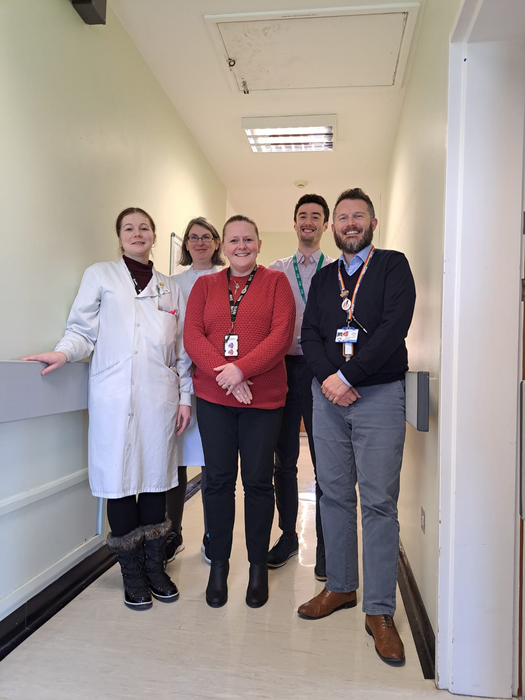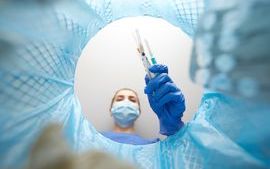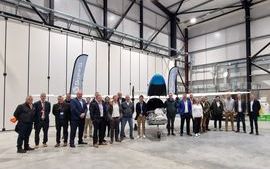- Published:
- 04 March 2024
- Author:
- Dr Rob Shorten
- Read time:
- 3 Mins
The microbiology team at Lancashire Teaching Hospitals (LTH) eagerly volunteered to participate in a pilot of the Laboratory Efficiency Assessment Framework (LEAF), run by University College London. LEAF is an established audit tool used by academic laboratories to reduce their environmental impact and was adapted for diagnostic laboratories. We jumped at the chance to be involved.

The framework uses 16 audit standards covering 7 overarching areas. These areas were selected to emphasise the range of areas in a clinical laboratory that generate environmental impact. These ranged from people – with the understanding that, to embed culture change, you need to ‘bring people with you’ – to more hands-on aspects, such as waste and the use of electrical equipment.
People
We formed the Microbiology Greens (the MGs), a small group of keen individuals, who went about engaging the whole lab team. Lab sustainability is now regularly discussed at all lab meetings; we have a prominent noticeboard with a space for suggestions outside the main lab. Sustainability is now included in the pathology induction for new starters and is a standing item on relevant departmental meeting agendas.
Waste
We ensured that our waste streams are as segregated as possible. We made sure that nothing goes into clinical waste unless necessary, as this is much more expensive and has a higher carbon footprint than domestic waste. Our trust already uses a company that sorts domestic waste to recycle plastic bottles, tin cans and glass. All remaining waste is incinerated to create electricity and nothing goes to landfill.
Purchasing
All new capital purchases and contracts have a score attached to them based on several factors, including the environmental impact of the equipment or products.
Equipment
We scoped out the lab to identify pieces of equipment that could be powered down when not in use.
IT
All non-essential PCs are centrally powered down overnight. All screens had their brightness reduced to 25%.
Samples and chemicals
Strict purchasing restrictions and limited storage space mean that nothing is wasted and over-ordering is eliminated. If we have an excess of a kit or reagent, we offer this to neighbouring trusts in our network to prevent wastage.
Ventilation
Faults with the physical estate are reported promptly. Safety cabinets are powered down when not in use.
The microbiology department at LTH were awarded the Bronze LEAF award after undergoing a successful audit. We have demonstrated the positive first steps to reduce the environmental impact of our diagnostic service. We have improved staff engagement to the point where environmental sustainability is now regularly discussed in all meetings and all staff are actively encouraged to contribute suggestions to help us do even better.
A measurable impact was the identification by a biomedical scientist that a benchtop incubator was switched on 24/7 when it was only required to be used 1 day per week. Switching this off for the other 6 days saved energy equivalent to boiling 51 full kettles every week. We have adopted the ‘Green Kettle’ logo; these stickers have been applied to all pieces of equipment that can be safely powered down when not in use.
We learned that our people feel that this is important and want to contribute to help us do better. Knowing that team members feel that this is worthwhile means that, while not everything is easily implementable, we are ‘pushing at an open door’ with many interventions. If other laboratories are interested in doing similar work, then I’d strongly encourage them to form local groups to do so. Small wins quickly build up and you may be surprised at the enthusiasm of your colleagues.
The LEAF programme is currently undergoing redevelopment for a planned relaunch. We have set ourselves several priorities. We’d like to progress to Silver LEAF once the framework is relaunched after the pilot. Likewise, we’d like to support colleagues in the other pathology disciplines at LTH to attain their Bronze LEAF awards.
Furthermore, we are working towards more accurately measuring the savings created – a team member has attended a carbon footprinting course run by the Centre for Sustainable Healthcare. In the interim, labs might wish to look at other resources, such as the audit framework available from the European Federation of Clinical Chemistry and Laboratory Medicine.
Return to April 2024 Bulletin homepage




